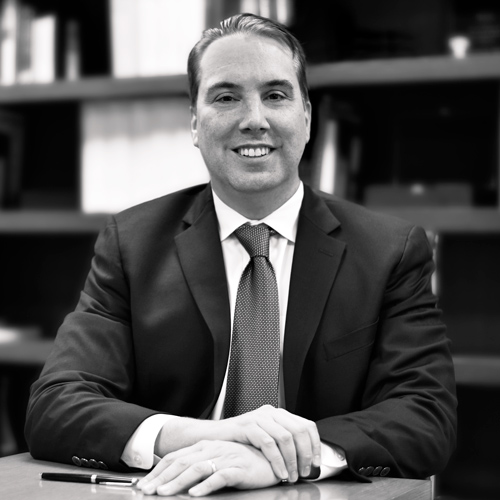
Perhaps the most well-known aspect of an intellectual property (IP) lawyer’s role is prosecution of patents. According to Renee DuBord Brown, though, there is much more to IP than simply patent protection. “Patents are one way to protect your technological information, but they’re not the only way,” Brown says. “Often, they are not the best way.”
Brown is the associate general counsel of IP at Knowles Corporation, a global company that designs, manufactures, and supplies microacoustic, audio processing, and specialty component solutions to mobile consumer electronics, communications, medical, military, aerospace, and industrial markets. While some may refer to her as a patent lawyer, Brown prefers technology protector because it emphasizes the diverse strategies she employs to protect IP. To understand how those plans were developed, one needs to look back on her career before she came to Knowles.
By the time Brown joined Knowles in 2015, she was an experienced IP generalist. After earning both a bachelor’s and a master’s degree at MIT in nuclear engineering and working as an engineer, she attended law school at Stanford University. She began her career in patent prosecution, a clear choice for someone with her qualifications living in the San Francisco Bay Area. After completing a clerkship at the Federal Circuit Court of Appeals, though, she transitioned to patent litigation and worked for more than a decade as a law firm trial attorney.
Brown’s first in-house position was at Tessera, a company that licenses technology, where she served as senior vice president of litigation. She then transitioned to Motorola, where her role expanded to include licensing and commercial work. Working at companies with vastly different IP strategies and goals led to an appreciation that there is no single method that works across all companies.
“Companies do things very differently based on their strategy,” Brown explains. “There isn’t one form of best practice that can be translated to Knowles.”
Today when implementing Knowles’ IP strategy, Brown considers a variety of factors—including the company’s budget, competitors’ actions, and Knowles’ manufacturing locations—to determine where and how to seek patent protection. Market cycles and international legal regimes also matter. For example, depending on a product’s life cycle, it can become obsolete before the patent process is completed.
“You don’t want to invest too much effort patenting a technology that is only going to be around for five years,” Brown says. “It may not even give you time to get a patent granted and then enforce it. But there are short-term options in some jurisdictions that might make more sense.”
Without a clear understanding of the costs and benefits, engineers may want to patent every invention in every jurisdiction. Clearly communicating to the business the pros and cons of a given approach can be just as important as the approach itself. “I’m not here to file patent applications just because somebody wants one,” she says. “It has to have a business justification.”
Knowles manufactures its own products and has deep expertise in certain process technologies, so protecting the company’s IP through patents is sometimes not the most effective strategy. As a result, Brown includes a strong focus on protecting trade secrets, a process that depends not solely on the legal team but also on careful coordination among many departments. Because Brown understands both the company’s technologies and the legal standards required to qualify for trade secret protection, she acts as a conduit among the engineering, IT, and HR departments, working closely with the relevant teams to identify and protect critical documents and know-how.
Finally, protecting IP from competitors is important, but just as critical is the need to ensure you know what you really own. IP creation happens all the time in ongoing relationships with partners around the world, and that has to be monitored.
Brown prioritizes having early, frank discussions with Knowles’ partners. She works closely with the supply chain to ensure that a fair division of IP rights is part of the conversation as soon as possible. “A clear contract is so valuable in ensuring a good working relationship,” she says. “IP rights should be agreed upon up front whenever possible.”
Brown is the only member of the seven-person legal team located in Silicon Valley, so communication is not as easy as stopping by a colleague’s office. Instead, she has a weekly call with her IP team at the company headquarters in Itasca, Illinois, and travels there as often as possible.
She prizes this face-to-face communication, which offers a space to share seemingly nonessential details. Brown applies this approach with the business, as well. Either Brown or the IP attorney on her team attends all technology and product review meetings to stay abreast of any new technical developments and new partners, as well as identify potential issues that could arise.
“I can’t expect that people are going to know when they should submit something for patenting or be able to perfectly identify what should be kept as a trade secret,” Brown says. “I expect them to generally tell me what’s going on, and I’m going to tell them if I spot legal issues with what they’re doing.”
To build trust outside of the legal department, Brown travels internationally to meet with some of Knowles’ roughly eight thousand employees located in twelve countries around the world. This in-person communication is essential for establishing the IP function’s place in the business and anticipating potential issues.
“People will not raise issues to you if they don’t know you personally,” she says. “Only once they feel comfortable that they know you will you find that they reach out proactively and ask you questions.”
Brown professes a particular affinity for her visits to China, as she sits on the Board of Trustees for the International School of the Peninsula, which has a bilingual Mandarin immersion program. “Face-to-face interactions are critical, but the ability to communicate with people in their native language is priceless. I’m very committed to giving my children that ability,” she says.
Brown says that with such a lean team, being decisive is vital. “You have to be comfortable taking some risks and making some judgment calls relatively quickly,” Brown says. “You have to be able to filter out legal noise for the business so they can make timely decisions.”
Brown’s multifaceted career in IP has allowed her to feel more comfortable making judgment calls because she has seen many different situations play out. “I love the variety of issues that arise, which keeps the job challenging and interesting.” Brown says. “But I’ve seen enough in my past roles to inform my judgment.”
Photo: VOX Media

